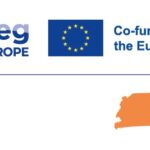Project, process, network; ongoing
EUSDR Priority Area(s): PA 2 Sustainable Energy
The Danube Strategy Flagship coordinates actions to foster the development of hydrogen economies in the EUSDR countries at a macro-regional level, building on synergies of the national actions and the favourable natural/geographical conditions of the EUSDR (e.g., areas of excellent potentials for green hydrogen production from renewables, tremendous transport facilities: either natural, such as the Danube River, or artificial such as the extended gas infrastructures, etc.). It analyses the entire hydrogen value-chain (production, transport/storage, end-uses) at a macro-regional level in a comprehensive way in order to make policy recommendations on how to adjust the different strengths/opportunities (e.g. production and transport capacities) and visions (e.g. various end-use development scenarios) at national levels into a transnational context, thus facilitating the development of a fully operational macro-regional hydrogen economy.
The Danube Strategy Flagship will also foster project generation (including IPCEI projects) in the hydrogen topic, and label selected successful projects as flagships (e.g. HyEfre, Danube Indeet projects).
Objectives: To become climate-neutral by 2050 – in line with the European Green Deal – Europe needs to transform its energy system, which accounts for 75% of the EU’s greenhouse gas emissions. This is especially relevant for the EUSDR countries, whose energy systems are often more outdated and fossil fuel-dependent compared to Western Europe. Hydrogen – as an energy vector – can support the decarbonisation of industry, transport, power generation and buildings, and can power sectors that are not suitable for electrification. Furthermore, it can play a systemic role in the transition to renewable energy sources by providing a mechanism to flexibly transfer energy across sectors, time, and place. This wide-ranging potential of hydrogen provides excellent opportunities for the EUSDR countries to move their energy systems and economies further along the decarbonisation pathways according to their national potential. The Danube Strategy Flagship’s objective is to promote the development of a fully operational macro-regional hydrogen economy through different actions (macro-regional analyses, policy recommendations, dedicated workshops and policy conferences, successful projects, etc.)
Need and (expected) impact: Hydrogen economies – though getting increasing importance in the EUSDR countries – are in their infancy (except for Austria, Bavaria, and Baden-Württemberg) compared to the western part of Europe. Only six countries have national hydrogen strategies (Germany, Austria, Czechia, Slovakia, Croatia and Hungary) and are in preparation at various stages in the other EUSDR countries. The different priority topics are defined at national levels according to their economic interests and possibilities and thus have a great variety among the countries (e.g. countries with existing gas pipelines and underground gas storage capacities prioritise the retrofitting of these infrastructures along gas blending with hydrogen and hydrogen storage). Nevertheless, these national strategies lack transnational aspects on how to match the different “puzzles” of the entire hydrogen value chain (production, transport/storage, end-uses) defined at national levels into a coherent macro-regional vision of a fully integrated and efficient energy system, where the amounts of produced (green) hydrogen is fulfilling the demand of various end users.
Macro-regional dimension: All EUSDR countries are cooperating and the expected impacts are relevant to all cooperating countries.
Stakeholders involved: National hydrogen clusters/associations, industry partners from the entire hydrogen value chain, academia, policy- and decision-makers, and authorities.
Budget and Funding: Flagship projects with their budgets (potential sources: centrally managed European programmes (Horizon Europe, LIFE Clean Energy Programme, Connecting Europe Facility Programme, etc.), Interreg Transnational Programmes (DRP, CE)
Flagship other process/network activities: est. EUR 10 000/year (source: DRP – PAC – PA 2, PA 2 – Energy project)
Contact: Annamária Nádor, Priority Area Coordinator, PA 2, Mining and Geological Survey of Hungary,

>> Download Certificate 2022 <<
>> Download Certificate 2023 <<



